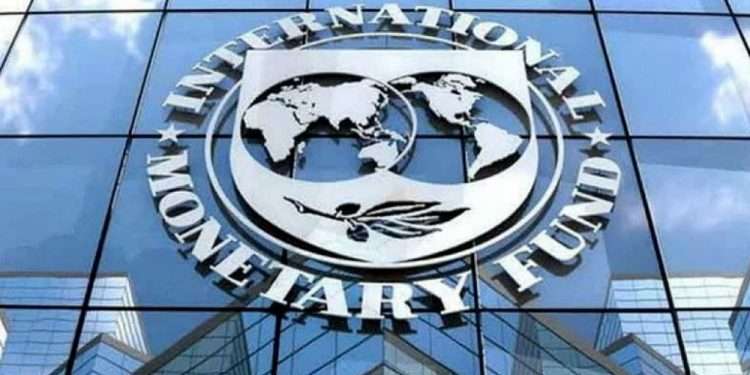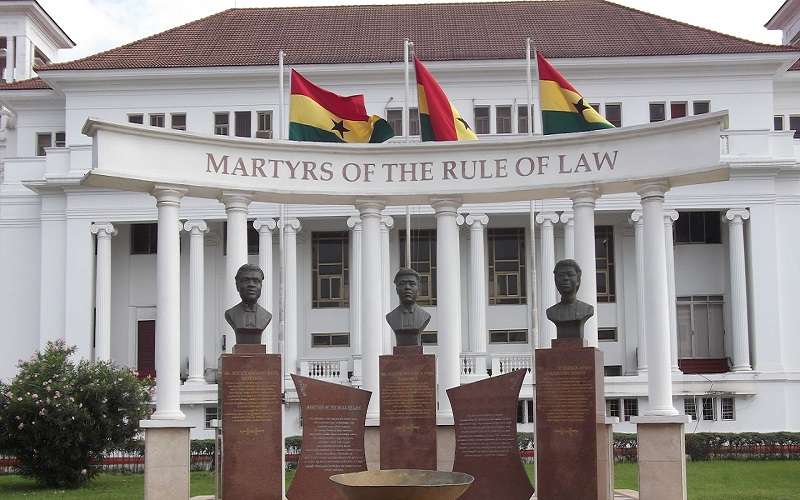The claims of reputational risk surrounding the Bank of Ghana (BoG) have been dismissed by Prof. John Gatsi, an economist, who has defended Dr. Johnson Asiamah, the newly appointed Governor, as a credible professional.
Contrary to the claims being pushed by the NPP, Gatsi maintained that no reputational risk has emerged from Dr. Asiamah’s appointment as Governor of BoG.
His remarks come in response to allegations by the minority, who have expressed their intention to formally petition the International Monetary Fund (IMF) over Dr. Johnson Asiamah’s appointment, arguing that it raises reputational concerns for the central bank.
Accordingly, Prof. Gatsi emphasized that under Ghana’s criminal jurisprudence, an individual can only be deemed guilty if proven beyond reasonable doubt and convicted by a court of competent jurisdiction.
“Reputational risk arises when the person suffers or is convicted by a court of competent jurisdiction for which he does not meet the fit and proper test to occupy the position, but the government goes ahead to appoint him to that position.
“If that does not happen, that person is as credible, honest, and free as though he has never been charged by any court”.
Prof. John Gatsi
Providing further context, Prof. Gatsi explained that the charges once leveled against Dr. Asiamah were initiated by the state itself.
However, after further scrutiny, the same state decided to withdraw the case, recognizing that the allegations were either unjustified or lacked sufficient grounds for prosecution.
He argued that this decision by the state is an acknowledgment that proceeding with the case would have been unfair to Dr. Asiamah and others involved.

Meanwhile, this controversy dates back to a broader investigation into financial transactions involving key government institutions, including the Bank of Ghana.
Dr. Asiamah, who previously served as a Deputy Governor of the BoG, was among the individuals named in legal proceedings.
However, after further review, state prosecutors opted to discontinue the case, signaling that the evidence did not meet the threshold for prosecution.
Accordingly, Prof. Gatsi emphasized that since Dr. Asiamah was never convicted, the claims of reputational damage are, in his view, entirely unfounded. “So, Dr. Asiamah is honest [and] has the dose of integrity within him as any other person who speaks on this matter”.
As the debate over Dr. Asiamah’s appointment intensifies, Prof. Gatsi’s remarks highlight a key legal and ethical consideration: whether unproven allegations should be weaponized to discredit an individual who has not been found guilty of any offense.
IMF Unfazed by Baseless Reputational Risk Claims
Furthermore, Prof. John Gatsi dismissed suggestions that the International Monetary Fund (IMF) should be involved in the matter, emphasizing that the IMF does not interpret domestic legal issues but rather relies on the judicial processes of sovereign nations.
He clarified that the IMF’s focus is on macroeconomic policies, financial stability, and institutional governance, and as such, it remains unconcerned by reputational risk claims unless they are substantiated.
According to Prof. Gatsi, the IMF recognizes and respects the sovereignty of national judicial systems in determining legal culpability.
He asserted that there is no legitimate basis for concerns about reputational risk regarding Dr. Johnson Asiamah’s appointment as Governor of the Bank of Ghana.

As such, he reiterated that accusations alone do not constitute wrongdoing, and the attempt to use unproven allegations as grounds for reputational risk is unfounded.
“And therefore, no issue has arisen. That’s well and good, but for a highly sensitive position like the governor, the IMF and other partners, and even the market, would have preferred that ab initio this did not arise in terms of one side of the parliament raising issues.
“Because you do know that the position itself is supposed to be independent, and I think Dr. Asiamah himself, when he met the team, said they would be independent”.
Prof. John Gatsi
Prof. John Gatsi also dismissed the notion that the IMF or other stakeholders would have preferred a controversy-free nomination to avoid politicizing the process.
While acknowledging that such debates may create political tensions, he argued that this does not necessarily translate into concern for the IMF. “The politicization of the appointment is coming from us, Ghanaians”.
Prof. Gatsi stressed that Ghana’s legal system provides clear guidelines for assessing an individual’s credibility through judicial processes.
He explained that for someone to be deemed unfit based on legal grounds, they must face formal charges, those charges must be valid and sustainable, and a court of competent jurisdiction must convict them.

Since the charges against Dr. Asiamah were found to be unsustainable and subsequently withdrawn, there is no legal basis to question his credibility.
He argued that any attempt to suggest otherwise is a deliberate effort to politicize the appointment. “So, we are the ones creating the political issue around this, and no international institution is interested in our politics”.
He further noted that this is not an unusual occurrence, as the state has previously withdrawn cases against individuals.
Citing the example of Richard Jakpa, where a Chief Director was not cleared, he pointed out that legal withdrawals of this nature are standard judicial practices.







